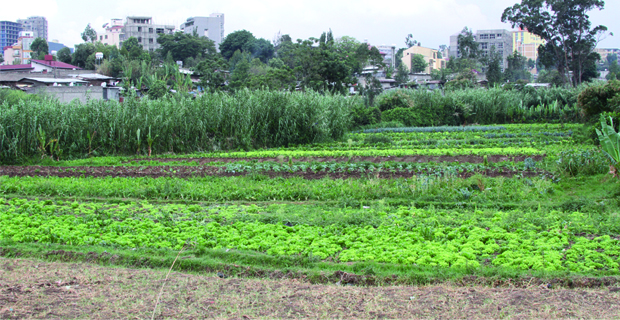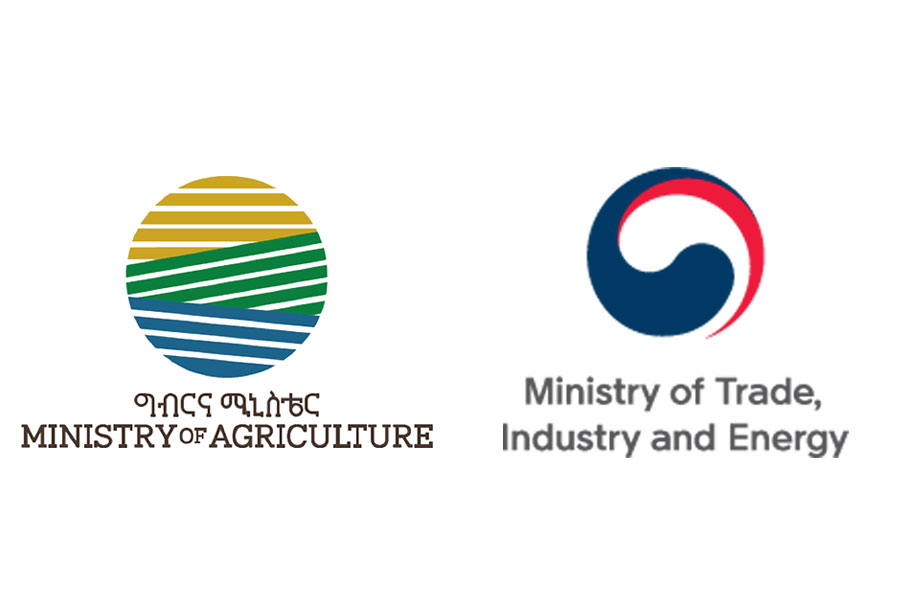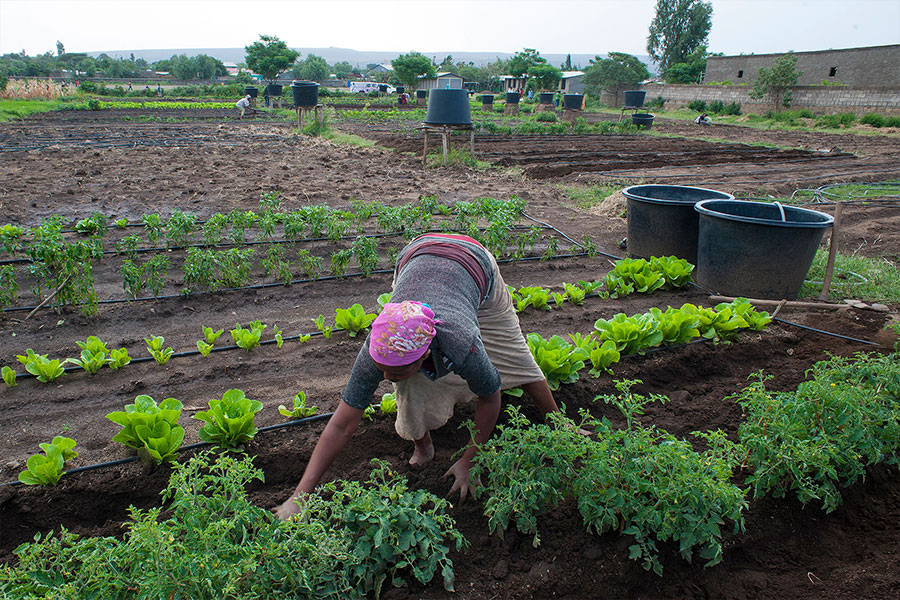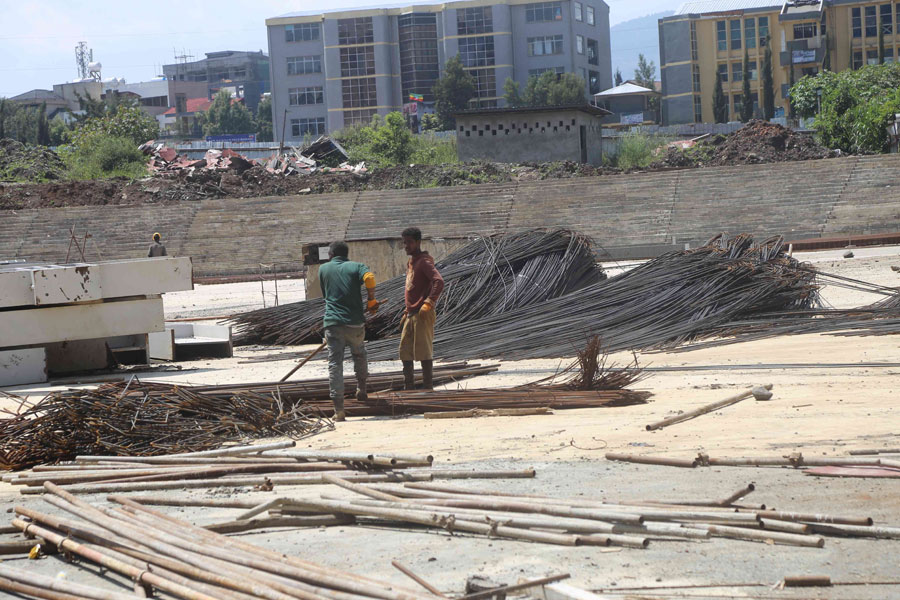
Radar | Jan 14,2023
 Existing laws do not adequately address agricultural production contracts, according to the bill.
Existing laws do not adequately address agricultural production contracts, according to the bill. The Ministry of Agriculture has drafted a proclamation to introduce contract farming. For the first time, farmers will be able to arrange contracts with buyers, determining prices and what they will produce in an agreed upon time frame.
The new bill, which has been two years in the making, was sent to the Council of Ministers at the beginning of January 2020. The Council forwarded it to the House of Federation for comment, since the issue directly concerns the regional states.
Existing laws do not adequately address agricultural production contracts, according to the bill.
"Thus it has become necessary to put a comprehensive legal framework in place that facilities transfer of technology, knowledge and skills, and market linkage between producer and contractor to improve production and productivity,” reads the bill.
The new scheme is expected to lay out a framework that allows agro-processing industries, investors, hotels, supermarkets and foreign investors to guarantee they will receive enough product to fulfill their demand.
Agricultural production contracts can be initiated through an offer by the producer or contractor; any government institution or non-governmental organisation involved in developmental activities can also initiate and facilitate such agreements.
The bill will introduce two types of contract farming agreements. The first type involves a contractor who is obligated to supply the inputs to the producers. Under this type of contract, the contractor provides the technology, technical assistance or finance needed for production. However, the price of the inputs cannot be higher than the prevailing local market price of the product.
Under the second type, the contractor has to supply the inputs to the producer only if there is a mutual agreement between the parties. If the contractor does not provide the necessary inputs, then payment must be issued to the producer.
"The growth in demand for certain agricultural products was very low," said Sani Redi, state minister for Agriculture, "and the relationship between the farmers and the rest of the value chain wasn't strong enough to design a legal framework for contract farming."
The contract must contain the parties' personal information, the purpose and objective of the agreement, the size of the farm, the parties' rights and obligations, production quality and quantity and the pricing model. It should also include the type of technical assistance that will be provided by the contractor, provisions for intellectual property, provisions for events considered to be force majeures, issues of succession, assignment of rights, duration of the contract, dispute resolution mechanisms, and the agreed upon dates.
Force majeures include extremely high or low rainfall or temperatures, floods, fires, landslides, earthquakes, diseases, and other unfortunate events depending on the details of the agreement. In such cases, the contract determines who will be financially responsible for the loss, according to the bill.
In addition, the parties can also agree to obtain insurance coverage against such force majeures with an understanding of who pays the premium for the insurance.
The duration of the contract depends on the nature of the contract and production method; however, the Ministry of Agriculture may determine the duration with a special directive depending on the nature of the agreement.
"We expect the bill to be legislated by the end of the year," Sani said.
Even though the bill will help modernise the agricultural sector, it is not a long-term solution to the country's need for sustainable food security, according to an agricultural economist who asked to remain anonymous.
It is only applicable to a limited number of products, including oilseeds, sugarcane and sesame, because the country's current levels of production do not satisfy the demand. The remainder is imported from foreign sources at a high cost, but this new bill will help fill in the gap, according to him.
"The scheme has to assume the floor price of the product at the time of the delivery, considering there might be price fluctuations," the expert said.
PUBLISHED ON
[ VOL
, NO
]

Radar | Jan 14,2023

Radar | Feb 09,2019

Fortune News | Aug 08,2020

Fortune News | Jul 18,2020

Fortune News | Jun 08,2024

Fortune News | May 13,2023

Fortune News | Sep 09,2023

Fortune News | Dec 25,2021

Fortune News | Oct 07,2023

Fortune News | Jul 20,2019

Dec 22 , 2024 . By TIZITA SHEWAFERAW
Charged with transforming colossal state-owned enterprises into modern and competitiv...

Aug 18 , 2024 . By AKSAH ITALO
Although predictable Yonas Zerihun's job in the ride-hailing service is not immune to...

Jul 28 , 2024 . By TIZITA SHEWAFERAW
Unhabitual, perhaps too many, Samuel Gebreyohannes, 38, used to occasionally enjoy a couple of beers at breakfast. However, he recently swit...

Jul 13 , 2024 . By AKSAH ITALO
Investors who rely on tractors, trucks, and field vehicles for commuting, transporting commodities, and f...

Nov 1 , 2025
The National Bank of Ethiopia (NBE) issued a statement two weeks ago that appeared to...

Oct 25 , 2025
The regulatory machinery is on overdrive. In only two years, no fewer than 35 new pro...

Oct 18 , 2025
The political establishment, notably the ruling party and its top brass, has become p...

Oct 11 , 2025
Ladislas Farago, a roving Associated Press (AP) correspondent, arrived in Ethiopia in...